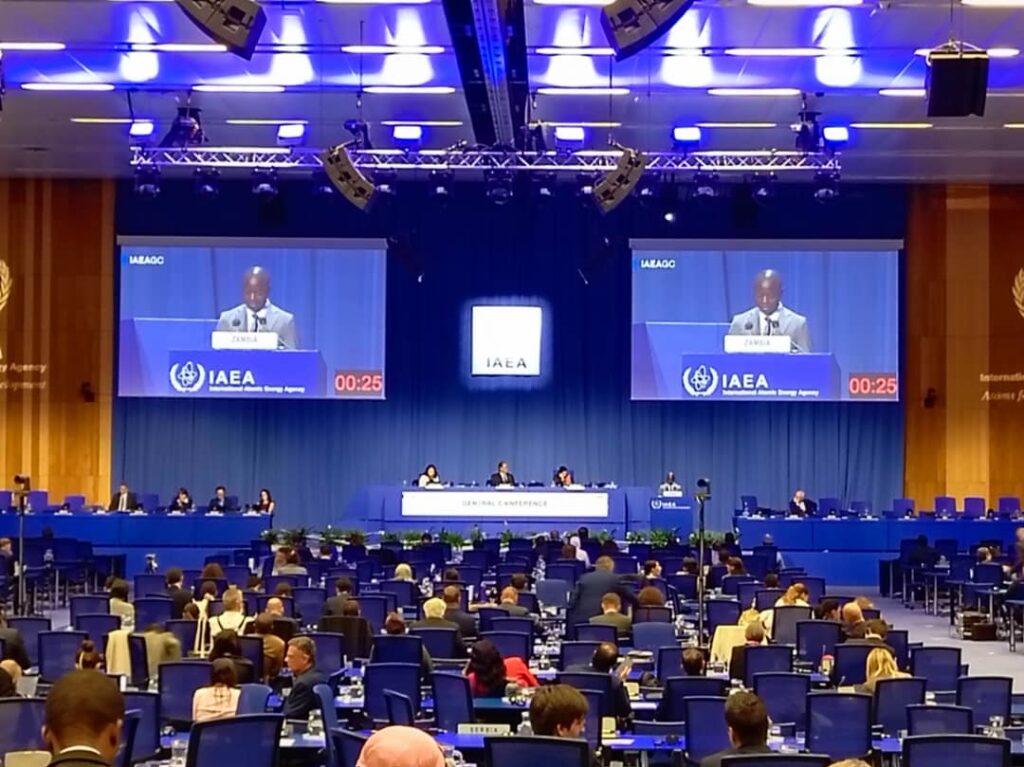Zambia Ready to Utilize Nuclear Science for Peaceful Development
Zambia’s government has expressed its commitment to harnessing nuclear science and technology for peaceful purposes to tackle pressing national challenges, including ongoing drought conditions.
Dr. Brilliant Habeenzu, Permanent Secretary in the Ministry of Technology and Science, emphasized the importance of integrating nuclear solutions into national development strategies during the 68th General Assembly of the International Atomic Energy Agency (IAEA).
Dr. Habeenzu highlighted that food insecurity and emerging diseases could be effectively addressed through peaceful applications of nuclear science. He noted that climate change is exacerbating challenges like prolonged droughts and severe flooding, necessitating innovative solutions.
Reaffirming Zambia’s commitment to collaborate with the IAEA, Dr. Habeenzu commended the agency’s global efforts to promote peaceful nuclear applications.
He announced the implementation of Zambia’s second Cancer Control Strategic Plan, which aims to enhance access to cancer treatment through advanced radiotherapy techniques. The country is upgrading the Cancer Diseases Hospital, installing new equipment including linear accelerators and brachytherapy units.
Zambia has also been designated as a second-wave country under the IAEA’s Rays of Hope Initiative, set to receive a linear accelerator for its new radiotherapy centers. This initiative will support regional training in radiotherapy technology and radiation oncology.
In addition to healthcare advancements, Dr. Habeenzu revealed that the government is leveraging nuclear technology to boost production in the fisheries and livestock sectors, which are critical for economic growth and diversification.
Dr. Habeenzu is joined at the IAEA General Assembly by key officials from the Ministry of Technology and Science and the Radiation Protection Authority, emphasizing Zambia’s proactive approach to integrating nuclear science for the benefit of its citizens.



